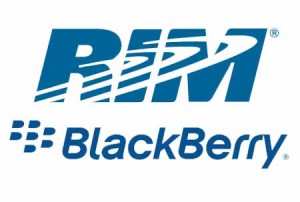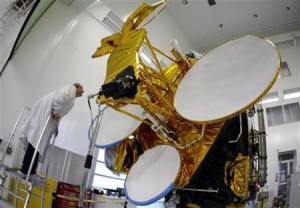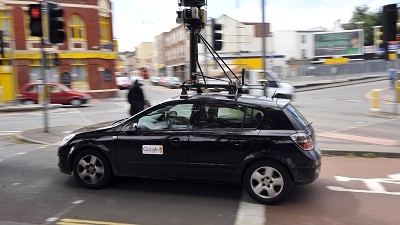 Research In Motion is missing crucial targets for introducing new BlackBerry models, squandering an opening provided by Nokia’s decision to abandon its own software, an analyst warned on Thursday.
Research In Motion is missing crucial targets for introducing new BlackBerry models, squandering an opening provided by Nokia’s decision to abandon its own software, an analyst warned on Thursday.
Citigroup, in a note downgrading RIM to “hold” from “buy”, said new BlackBerry touchscreen models may miss the crucial back-to-school buying period due to production delays, while giants Apple and Google zoom ahead.
“Thus far our supply chain checks show that RIM’s new models have not yet been certified by major wireless carriers and are not in mass production which concerns us,” analyst Jim Suva wrote to clients.
Citi slashed its target price on the company’s shares to $45 from $80. The stock rose 2.4 percent to $37.61 on the Nasdaq on Thursday after falling in five of the last seven sessions. It has lost a third of its value this year.
RIM has shown off a more powerful touchscreen version of its enterprise workhorse, the Bold smartphone, and promised radio-enabled versions of the PlayBook tablet by the summer.
But analysts have grown increasingly pessimistic on RIM’s execution since the company warned that weak sales in the United States and Latin America would limit profit this quarter.
The company, due to report fiscal first-quarter results on June 16, stunned investors in late April with a steep downward revision of its forecasts even as it promised a turnaround from a line-up of new BlackBerry smartphones. It expects to earn between $1.30 and $1.37 a share on revenue below $5.2 billion.
“MATTER OF TIME”
Many doubt the Canadian company can reach its robust earnings target of $7.50 s share for the current fiscal year. The average analyst view is that RIM will earn $6.35 a share in the year ending in early March next year.
“It is simply a matter of time until management capitulates” on that target, Susquehanna Financial analyst Jeffrey Fidacaro said, as “sales trends have deteriorated and QNX devices may come too little too late.”
He cut his price target to $31 from $46 and warned RIM faced mounting risks to its market share and margins.
RIM’s PlayBook tablet, launched to scathing reviews in April, uses the QNX operating system acquired last year. It will replace its creaky smartphone platform from next year.
For now, RIM is hoping new touchscreen phones featuring an upgrade to the existing BlackBerry operating system and improved hardware will suffice.
But competition is intense, with Apple expecting to launch its iPhone 5 in September and a slew of handset makers rushing out Android-based devices at both the high and low end of the market.
NOKIA’S WOES
The competition has already rolled over Nokia, the world’s biggest mobile phone maker by volume. The Finnish company has abandoned hope of meeting targets and is in limbo as it switches to Microsoft’s software after abandoning its own Symbian platform.
Nokia market share losses present a window of opportunity for RIM, but only if the company can execute new product launches on time to attract consumers, Citigroup’s Suva said.
“However, we believe Research In Motion is letting this opportunity slip,” he said.
In the hypercompetitive U.S. smartphone market, BlackBerry has slipped to third place behind Android and Apple, according to market research firm comScore.
“Current trends suggest RIM continues to lose share in the U.S. and media sources flagged that the new Bold 9900/9300 based on OS7 could be further delayed until September,” Susquehanna’s Fidacaro said.
It expects to earn between $1.30 and $1.37 a share on revenue below $5.2 billion.
Source : Reuters




































